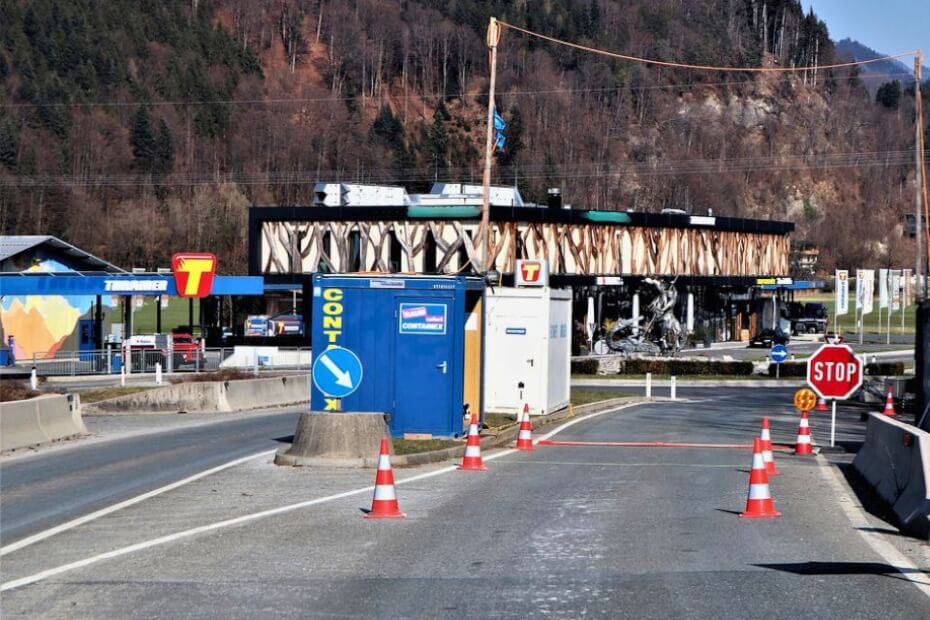
Concerns are mounting over potential delays due to fingerprint checks for British tourists entering the European Union (EU).
The former head of the United Kingdom (UK) Border Force, Tony Smith, has warned that the new EU border check system, the Entry/Exit System (EES), could lead to significant travel disruptions.
The expected delays and long queues due to the EES would be especially worse at major entry points like the Port of Dover and the Channel Tunnel.
Smith said the new automated border check system could add around seven minutes per car or family at border crossings.
While this may not seem like much, Smith stressed that it could add up to hours of waiting during peak travel times.
Call for advance fingerprint checks
The EU will launch its EES system in November this year as a way to track travelers from countries outside the EU,
The system requires non-EU nationals to submit biometric data, such as fingerprints or facial scans, upon entering or exiting the Schengen Area.
Smith, now chair of the International Border Management and Technologies Association (IBMATA), urged the EU to allow British travelers to complete fingerprint checks in advance.
He suggests that UK travelers register biometric data ahead of time to help prevent chaos at busy UK-EU border crossings.
This may be achievable through the use of an advanced smartphone mobile app.
The mobile app should allow travelers to submit their personal data, photographs or facial scans, and fingerprints before their trip.
This approach, Smith believes, could significantly reduce the waiting times at borders and prevent the travel chaos that many are anticipating.
“Why do you have to do it at a French border guard kiosk on departure?” Smith told The Telegraph.
“Why not do it on your sofa? Get your passport. Get your mobile phone. Register that data on the app and submit it to the EU in advance of going there,” Smith said.
However, so far, no technology has been tested to be a secure way to take fingerprints remotely.
Instead, he suggested that UK travelers register for advance fingerprint checks at visa application centers.
For years, the UK has included fingerprint registration for those applying for a UK visa.
Why fingerprint checks at the border are a problem

The ex-UK Border Chief also questioned whether fingerprint checks are necessary for short-term, low-risk tourist travel.
The UK is already introducing a similar system for non-visa travelers, including EU citizens visiting the country.
However, the UK’s Electronic Travel Authorization (ETA) scheme does not require biometric data.
European visitors can submit their details and pay online for the digital travel permit.
The EU also plans to introduce another border system called the European Travel and Information and Authorization System (ETIAS).
Due to roll out in mid-2025, the ETIAS works much more similarly to the UK ETA. Both aim to pre-screen non-visa travelers in advance.
If the EU implements EES registration at the border, travelers may encounter long lines for checks.
After the initial registration, the EES system will keep their fingerprints and photos on file for three years.
This means travelers won’t have to repeat the process every time they travel, but the initial wait could still be considerable.
The EES system remains relatively untested and may be subject to malfunctions similar to electronic gate failures.
This could lead to more delays beyond the initial fingerprint registration.
UK Government’s response to potential disruption due to EES
The British Government is also concerned about the potential for travel chaos brought about by introducing the EES.
Home Office Secretary Yvette Cooper criticized the former Conservative Government’s insufficient preparations to prevent delays.
“Insufficient progress has been made on ensuring that these impacts (as well as other potential impacts) are minimized,” she said.
The UK government has asked the EU to consider a six-month “grace period” to suspend EES checks if queues become unmanageable.
This grace period would extend beyond next summer, giving both governments time to find a more permanent solution.
Additionally, the UK is making some changes on its end to help mitigate delays.
The Home Office is working on legislation to enable French border guards to carry out checks in an expanded area at the Port of Dover.
The eastern docks of the port have been designated for private vehicles, while the western docks are for coaches.
The proposed legislation will allow French border guards to conduct EES checks at the western docks.
This segregation of private vehicles from coaches is intended to prevent bottlenecks that could cause delays and traffic congestion.
EU’s stand on advance fingerprint checks

Despite the growing concerns, the EU has so far been unwilling to make significant changes to its planned EES launch.
It is currently bound by Regulation 2017. This requires that all biometric checks be done at the point of entry under the supervision of a border officer.
Smith acknowledges that while the EU could be more flexible, its current position is unlikely to change unless there is a strong push for reform.
“The EU won’t shift from that position but they could if they were so minded, if they were a little bit more conservative,” Smith said.
As the November deadline approaches, the prospect of travel chaos looms large for British tourists heading to the EU.
The EU has been developing an EES mobile app that could help mitigate potential delays.
However, the EES mobile app reportedly will still not allow facial capture or fingerprint registration in advance.
The EES launch has been delayed multiple times, with the most recent delay due to several EU airports not being ready.
Whether the EU will take action to prevent delays that could turn holiday travel into a nightmare remains to be seen.
For now, travelers are advised to stay informed and plan ahead to minimize the impact of these new regulations.

